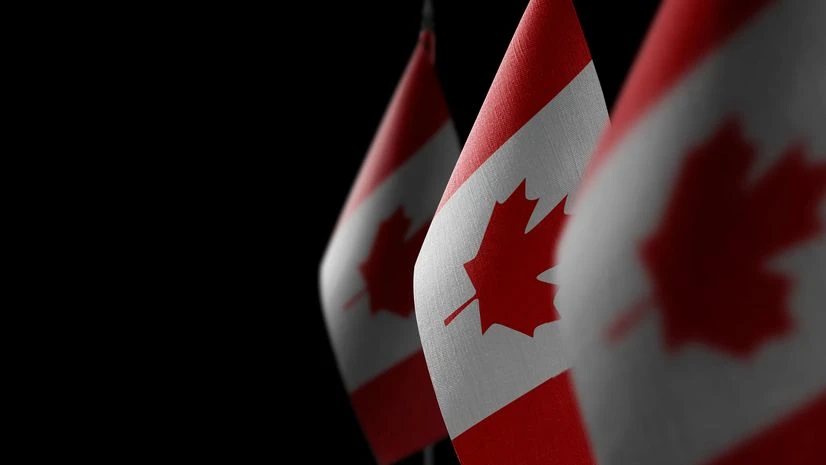"It’s not about immigration, it’s about math," opposition leader Pierre Poilievre said at a press conference last week. His comments come amidst growing concerns over Canada’s housing crisis and rising anti-immigrant rhetoric.
Speaking to reporters, Poilievre explained that if his party wins the next federal election, they will cap population growth to match the number of homes being built. "It’s not a question of whether you support immigration or not; it’s about basic mathematics," he said.
The Conservative leader made it clear that addressing the housing shortage is his priority, stating that Canada's immigration system needs reform to achieve this. He pointed to the imbalance between the number of homes being built and the rate at which the population is growing.
"We’re only building about 240,000 homes per year, which is a 1.4% increase in housing supply. But we’re growing the population by almost 3% under Trudeau and the NDP. No wonder we’re running out of homes," Poilievre said.
While specific numbers on the proposed immigration cap have not been disclosed, he emphasised the urgency of aligning population growth with housing availability. "We can’t grow the population faster than we’re building homes; otherwise, we’ll see even worse shortages."
Cutting down on international students
More From This Section
In addition to limiting overall population growth, Poilievre signalled that his government would scale back the international student programme, which he believes has spiralled out of control.
"We’re going to return to the system we had before Justin Trudeau," he explained. "A modest number of highly promising young people who excelled could come here, study, and if they followed the rules, they could stay."
He pointed to stories of overcrowding in cities like Brampton, where reports surfaced of more than 20 students living in one basement. Since 2015, the number of international students in Canada has surged from 350,000 to over 1 million last year, a situation Poilievre says is unsustainable.
Impact on the job market
It’s not just housing that’s feeling the pressure from Canada’s immigration numbers. Poilievre also raised concerns about the impact on the labour market. Recent statistics from the country’s unemployment figures showed a rise from 6.4% in July to 6.6% in August.
"We added 96,400 people to the working-age population last month alone, but we didn’t create enough jobs for them," he said. "We lost 44,000 full-time jobs in that same period and saw 60,000 more people added to the unemployment rolls."
Statistics Canada, the national statistical agency, has echoed similar concerns, noting that employment growth is not keeping pace with population growth.
"Given this pace of population growth, employment growth of about 50,000 jobs a month is needed just to maintain the employment rate," the agency warned.
Beyond housing and jobs, the rising cost of living continues to weigh heavily on Canadians. Canada’s inflation rate, while down from its peak, remains a concern for many, particularly in areas like food and housing.
In July 2024, rent and shelter costs rose by 5.7%, with cities like Toronto and Vancouver seeing the most dramatic increases. Poilievre argued that unchecked population growth is exacerbating these issues.
Deporting lawbreakers
Poilievre also touched on immigration enforcement, stating that while Canada should welcome those who contribute positively, those who break the law should be deported.
"If you follow the rules, pay taxes, and learn one of our official languages, you should stay. But if you’re breaking laws and defrauding the system, then you have to go," he said in response to questions about rising calls for stricter deportation measures for immigrants involved in criminal activities.
Canada has also seen an increase in fraudulent activity tied to the international student system. Last year, around 700 Indian students from Punjab faced deportation after discovering that the offer letters they received from Canadian colleges were fake. Brijesh Mishra, a 37-year-old education consultant from Jalandhar, India, was arrested in Surrey, British Columbia, for his involvement in the scam.
Mishra had been operating under an expired tourist visa and was sentenced to three years in prison for providing fake acceptance letters to prospective students. According to authorities, he charged between Rs 14 to 16 lakh per student, promising them a smooth entry into Canada’s education system.
An investigation by the Canadian Border Services Agency (CBSA) uncovered that Mishra’s actions affected hundreds of students between 2016 and 2020. As a result, the federal government has been investigating over 2,000 similar cases involving fraudulent letters.
Canadians' concerns about immigration
Immigration has increasingly become a hot topic in Canada's election campaigns. A recent poll from Leger, a Canadian market research and analytics company, revealed that 65% of Canadians believe the government is admitting too many immigrants. Of those surveyed, 78% said they felt immigration rates were contributing to the housing crisis, and 72% thought Canada’s immigration policy was too lenient.
Poilievre believes his proposed reforms will resonate with voters. "This isn’t about shutting the door on immigration," he said. "It’s about making sure that we can sustain the growth we have without putting our housing market, job market, and public services under unbearable strain."

)